Iowa naturalist Eileen Miller and I became acquainted through our shared appreciation for wildflowers. Her longstanding fascination with insects inspired her to learn more about the native plants these animals use to feed and reproduce.
Members of the Raccoon River Watershed Facebook group (open to anyone, not just central Iowans) are regularly treated to Eileen’s spectacular pictures of insects and arachnids, such as: an Eastern Comma caterpillar making a shelter, a crab spider guarding her egg sac, a wolf spider carrying spiderlings on her back, some Giant Ichneumon wasps drilling into a dead tree to lay their eggs on larvae of Pigeon Horntail wasps, a male giant water bug carrying eggs on his back, or a little planthopper winged adult emerging from the last nymph stage.
I recently asked Eileen to share some of her favorite pictures of insects feeding on and/or pollinating Iowa wildflowers. Thirteen gorgeous shots are enclosed below.
Eileen’s past contributions to this blog featured golden corydalis, hoary puccoon and fringed puccoon, marsh marigold, snow trillium, hepatica, blue cohosh, pasque flower, and yucca. Two years ago, she provided material for a post about unusual native fungi.
An Asteroid caterpillar (Cuculia asteroides) feeding on goldenrod (Solidago sp.)
A bee fly (Exoprosopa fasciata) feeding on nectar of blazing star (Liatris sp.).
A bumble bee mimic fly (Mallota bautias) feeding on nectar of Mountain mint (Pcynanthemum virginianum)
Cabbage White butterfly (Pieris rapae) feeding on nectar of Monarda/horsemint/wild bergamot (Monarda fistulosa)
Leaf beetle species feeding on nectar/pollen of Prairie Coreopsis (Coreopsis palmate)
Black-&-Yellow Mud Dauber wasp (Sceliphron caementarium) feeding on nectar of Butterfly Milkweed (Asclepias tuberosa)
Bumble bee species collecting pollen on Lead Plant (Amorpha canadense)
A flower fly (Spilomizia sp.) mimicking a yellow jacket wasp and sipping nectar from Joe Pyeweed (Eupatorium sp.)
A digger wasp (Mellisodes sp.) on Wingstem (Verbesina alternifolia)
A soldier fly species (Odontomyia cincya) on a species of fleabane (Erigeron sp.)
Eastern Tiger Swallowtail butterfly (Papilio glaucus) on mountain mint (Pcynanthemum virginianum)
Bumble bee (Bombus griseocolis) on Pale Purple Coneflower (Echinacea pallida)
Bumble bee (Bombus pennsylvanicus) emerging from the tube of a Turtle Head flower (Chelone glabra). Note the pollen spraying into the air.

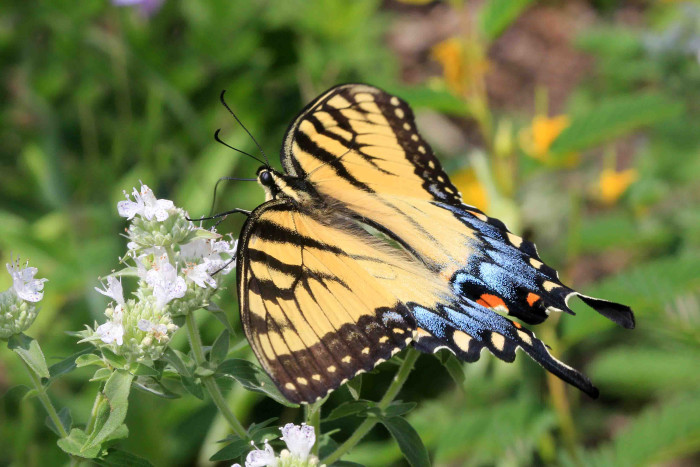
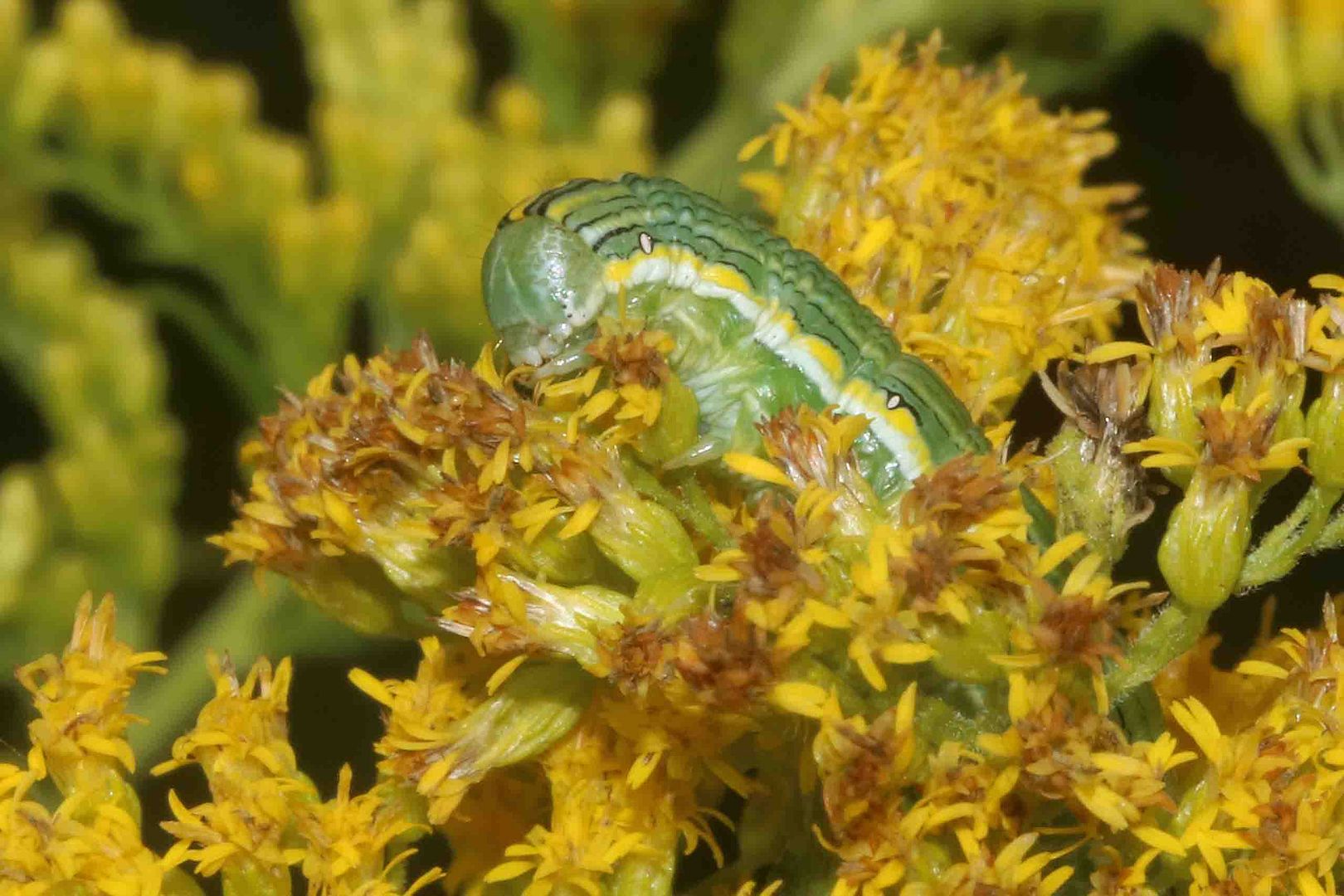
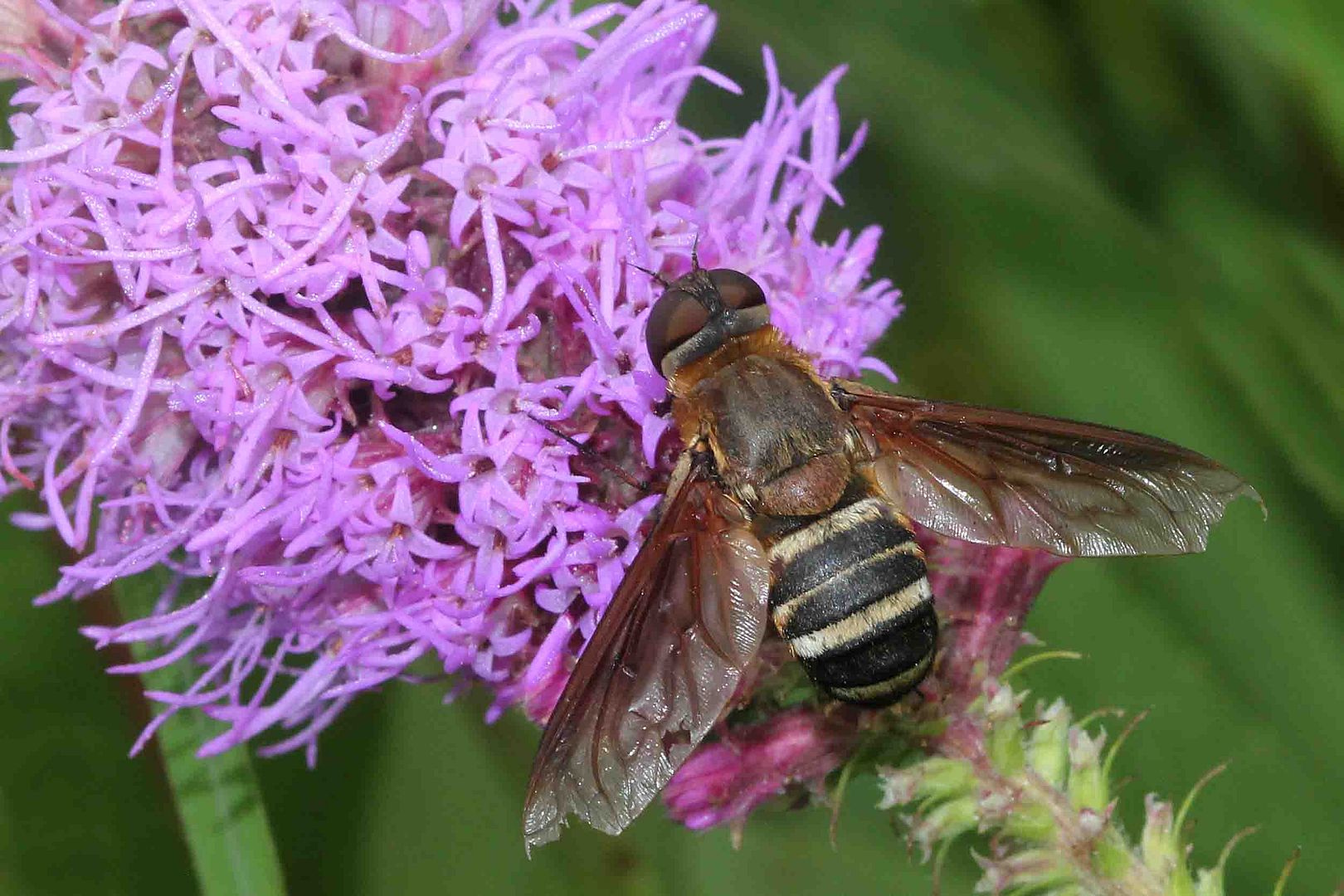
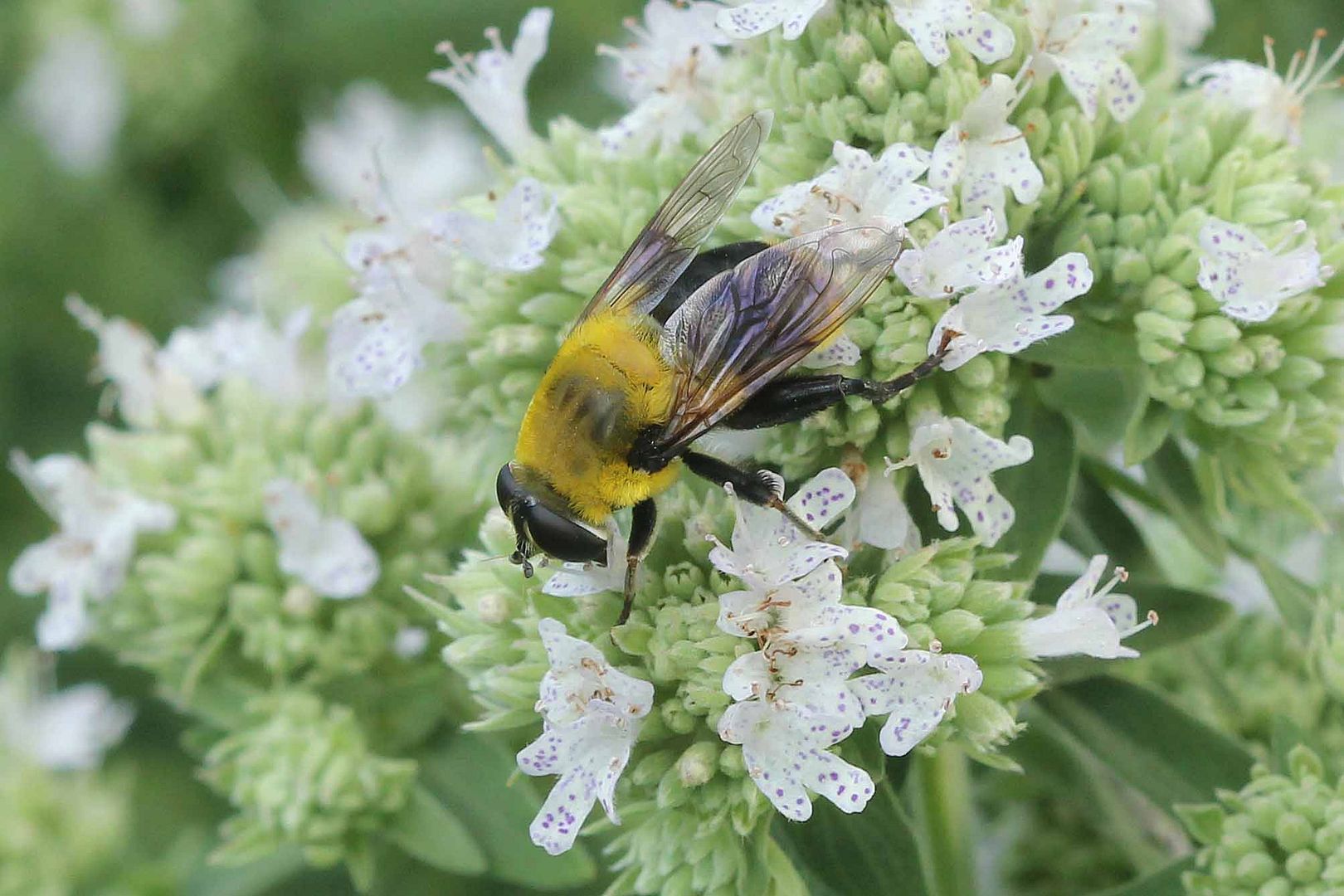
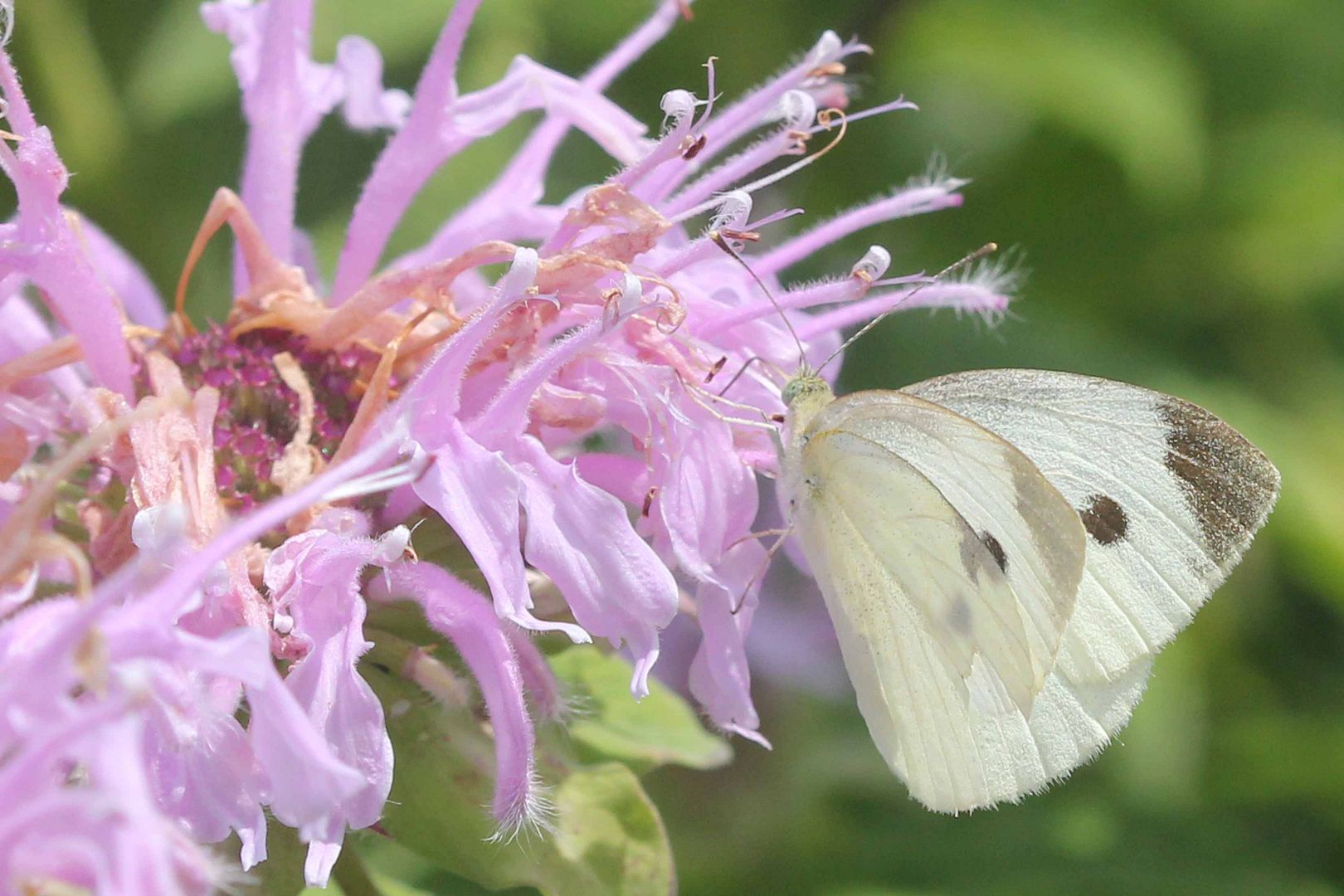
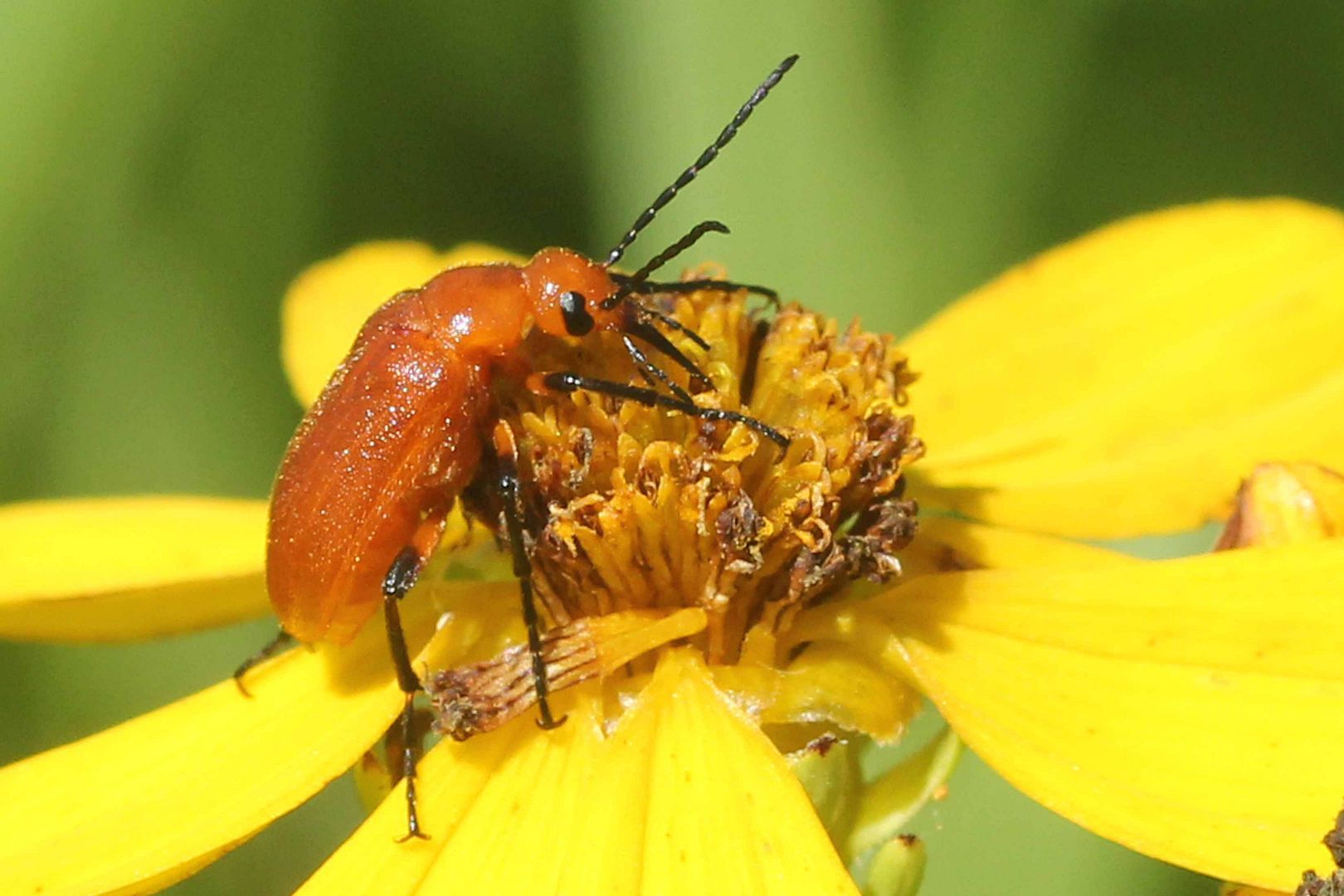
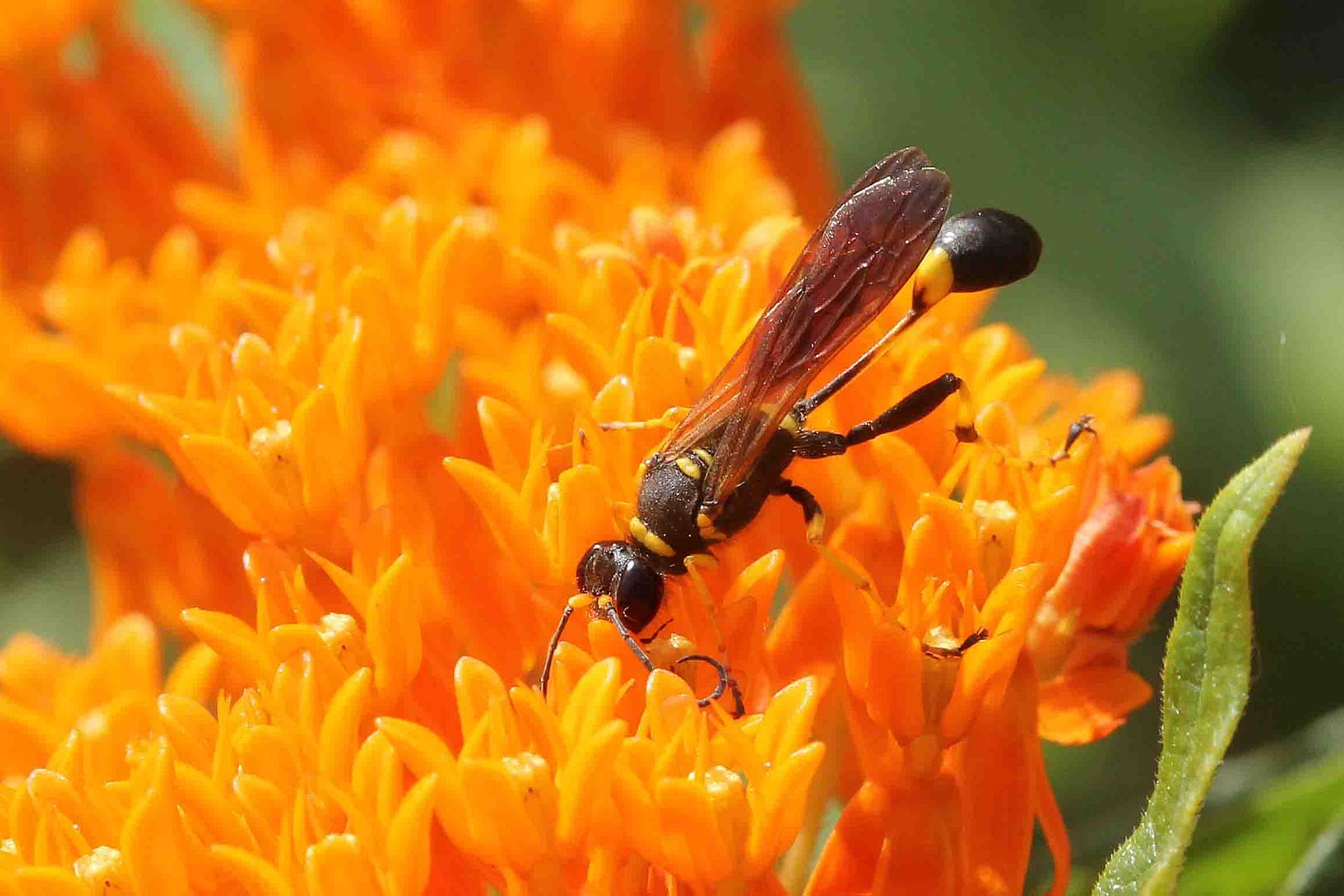
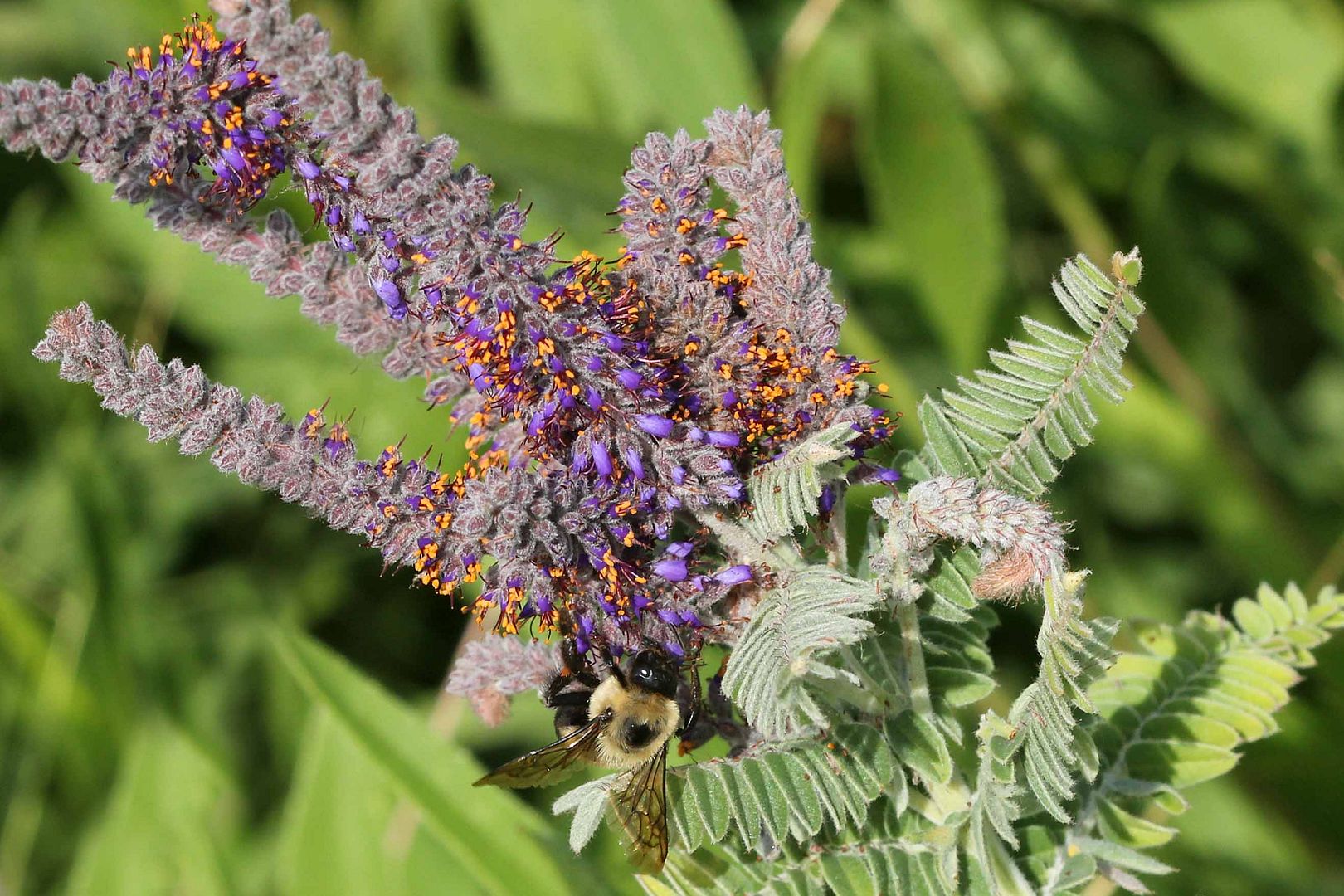

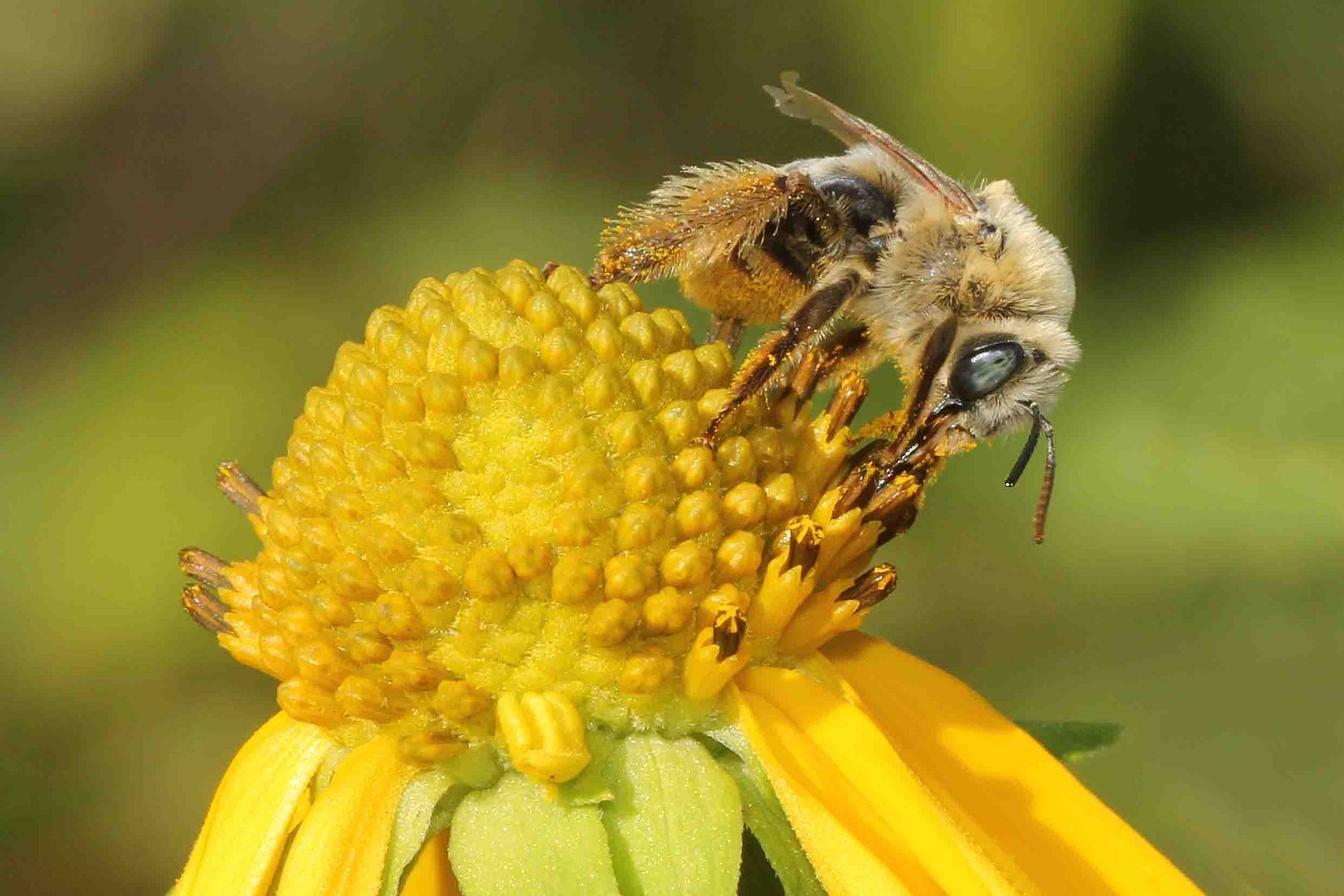
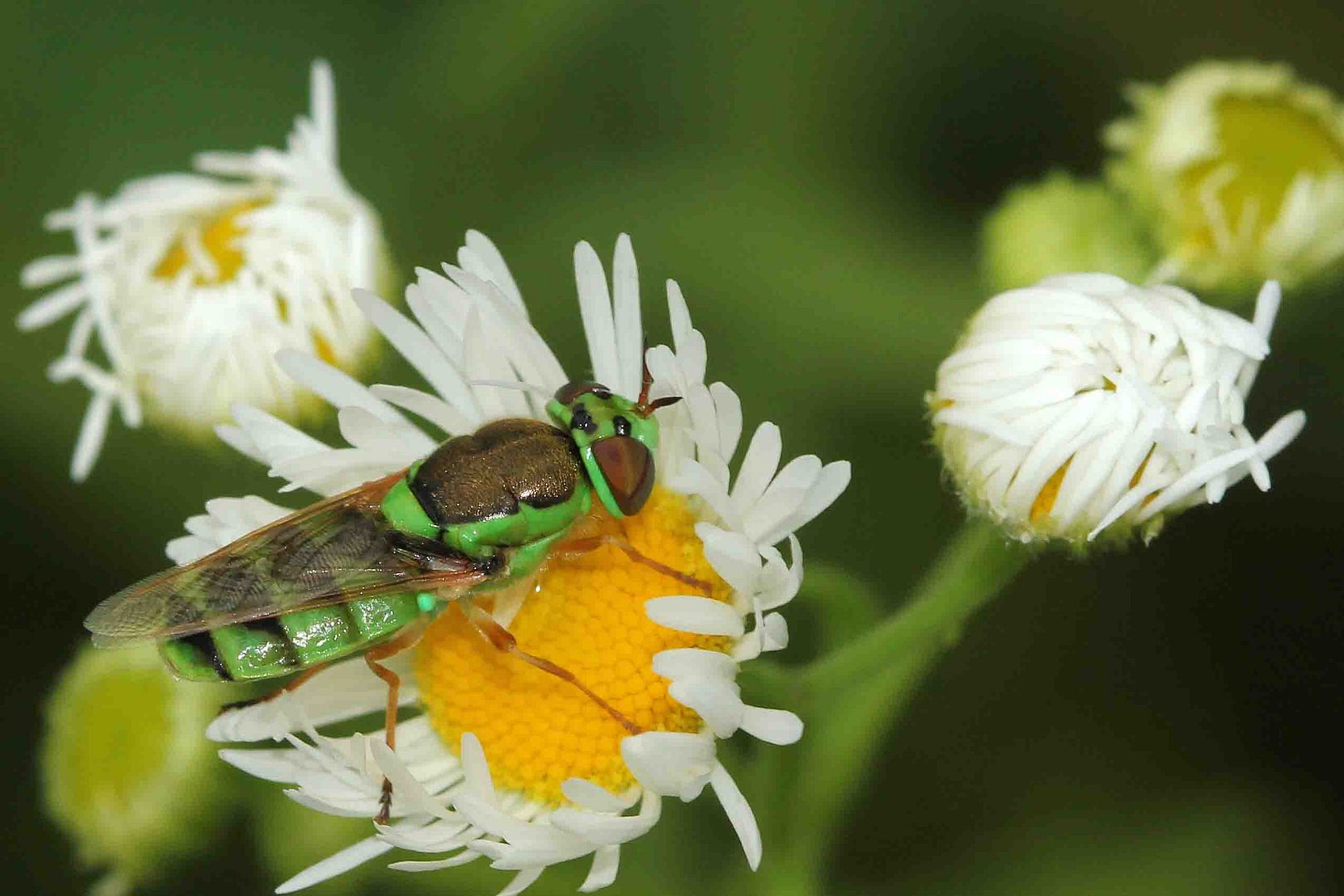
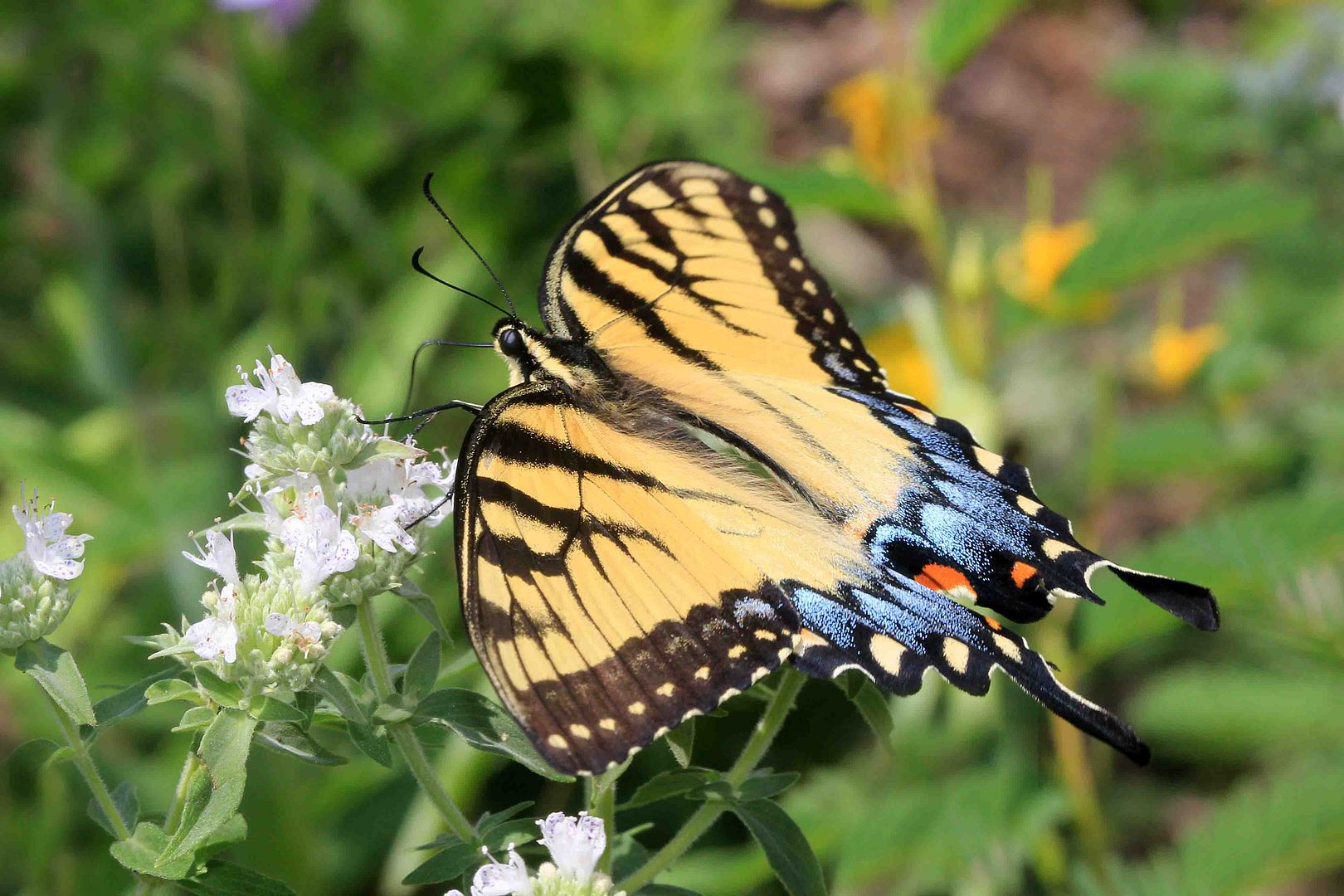
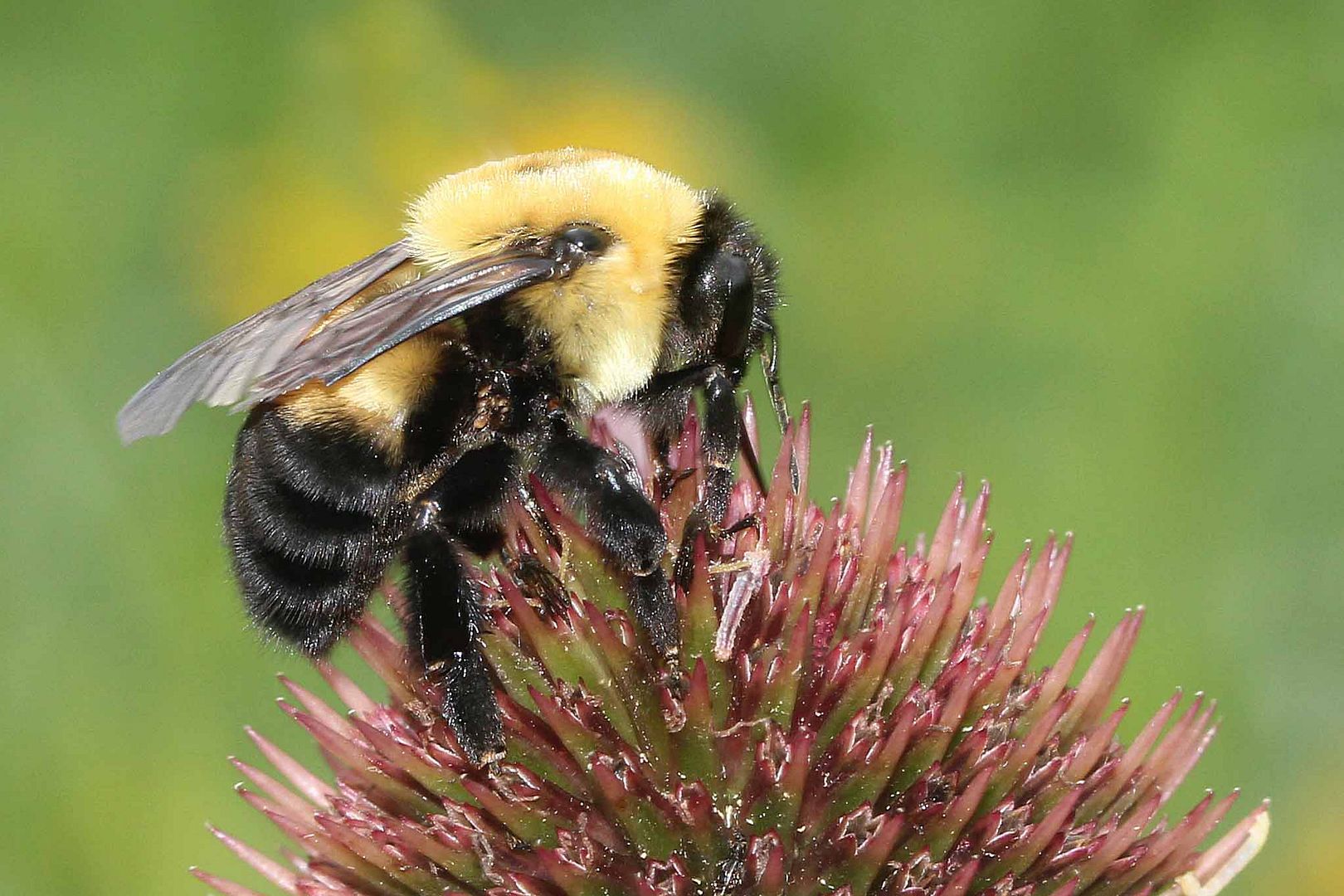
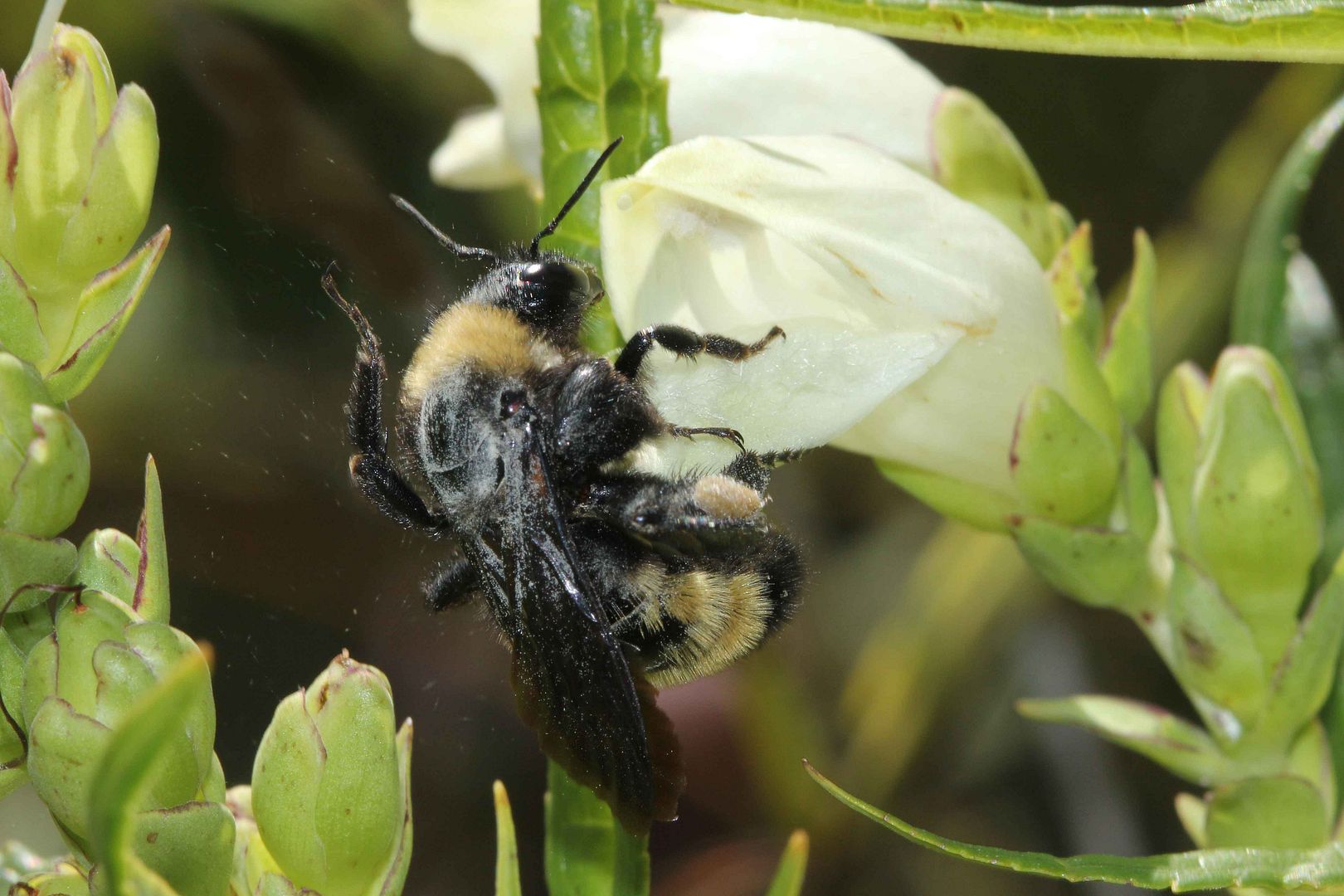
1 Comment
Sometimes Shakespeare says it best
“O wonderful, wonderful, and most wonderful wonderful! And yet again wonderful…”
PrairieFan Thu 11 May 12:22 PM